Why Hungary’s Democratic Backsliding Should Prompt NATO To Act – Center for American Progress https://t.co/9ywQAEwYWC
— Democracy Digest (@demdigest) September 10, 2020
Core to NATO’s future is its standing as an alliance of democracies, particularly given that its principal strategic competitors are China and Russia, major authoritarian powers, note two leading analysts.
Although deterring and defending against an aggressive Russia will remain high on NATO’s agenda, rethinking the nature of burden-sharing, finding ways to address democratic backsliding, and defining the alliance’s role in dealing with China will be central to navigating a post-COVID-19 world, according to James Goldgeier and Garret Martin of American University’s School of International Service.
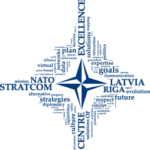 But geopolitics to make it difficult for NATO to address democratic backsliding, they write for War On the Rocks:
But geopolitics to make it difficult for NATO to address democratic backsliding, they write for War On the Rocks:
Turkey has long been a critical partner in NATO’s positioning toward the Black Sea region and the Middle East. Poland has become NATO’s most important ally from the former Warsaw Pact. Although democracy and the rule of law have been prerequisites to NATO accession since the end of the Cold War — even leading the alliance to exclude Slovakia from the first round of post-Cold War NATO enlargement in 1999 due to democratic backsliding — NATO has been unable to stop members such as Turkey, Hungary, and Poland from taking an authoritarian turn since joining.
NATO not only provides the “military backbone” to the West’s democracies, it has also played a significant role in the cultural consolidation of democratic governance, observers suggest.
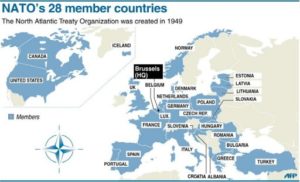 According to one analysis, NATO’s experience demonstrates that “the most important condition for the formation of a security community based on liberal-democratic norms is not procedural democracy but the diffusion of liberal-democratic norms that give full sense to the institutional machinery and provide the basis for an area of democratic peace.”
According to one analysis, NATO’s experience demonstrates that “the most important condition for the formation of a security community based on liberal-democratic norms is not procedural democracy but the diffusion of liberal-democratic norms that give full sense to the institutional machinery and provide the basis for an area of democratic peace.”
Others are more skeptical of Nato as a bulwark of liberal democracy.
“The truth is that for all the airy talk of ‘the values we share’, what bound Nato together during the Cold War was standing up to the Soviet Union,” notes one observer. “It is a security alliance; it is not and cannot be an alliance of liberal democracies (otherwise several members would have to be expelled and others in Asia would not want to join).’
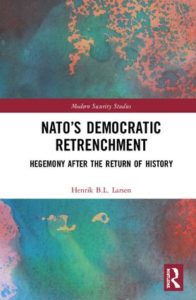 It is time for the NATO alliance to get serious about the threat posed by rising nationalism and democratic backsliding among its member states, say analysts Max Bergmann and Siena Cicarelli
It is time for the NATO alliance to get serious about the threat posed by rising nationalism and democratic backsliding among its member states, say analysts Max Bergmann and Siena Cicarelli
For NATO, it should be clear that the political character of each of its member states matters a great deal to the security of all members and to the effectiveness of the alliance, they write for the Center for American Progress. NATO needs to become a democratic alliance again, they add. To that end, the United States, the EU, and European states with significant influence on Hungary, namely Germany, could step in to exert their considerable leverage.
A return to great-power competition threatens to destroy what is left of the global institutions that governments rely on for tackling common problems, argues Princeton University’s G. John Ikenberry, author of A World Safe for Democracy: Liberal Internationalism and the Crises of Global Order. Liberal democracies would further descend into disunion and thereby lose their ability to shape global rules and norms. The world that would emerge on the other side would be less friendly to such Western values as openness, the rule of law, human rights, and liberal democracy, he writes for Foreign Affairs, advocating the conversion of the G-7 into a D-10, a more cohesive steering committee of democracies:
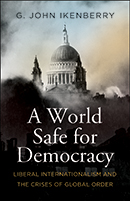 Liberal democracies, in particular, have an incentive to work together—not only because their shared values reinforce trust but also because their status as open societies in an open system makes them more vulnerable to transnational threats. Gaining the benefits of interdependence while guarding against its dangers requires collective action.
Liberal democracies, in particular, have an incentive to work together—not only because their shared values reinforce trust but also because their status as open societies in an open system makes them more vulnerable to transnational threats. Gaining the benefits of interdependence while guarding against its dangers requires collective action.
Even under a narrow definition, the world’s leading democracies—the United States, the EU, Japan, the United Kingdom, India, Canada, South Korea, and Australia—encompass well over half of global GDP, adds Edward Fishman, a former member of the Policy Planning Staff at the U.S. State Department. A new council of democracies would be well-equipped to produce initiatives that palpably improve the lives of their citizens and people all over the world. Such a council could also provide the ideal bulwark against autocracies’ efforts to export illiberalism, he writes for The Boston Review.
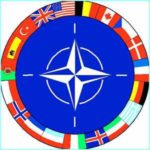 U.S. foreign policy should seek to remake the liberal world that already exists, instead of proceeding on the abortive mission of converting the whole world to liberalism, says Fishman, He is a nonresident senior fellow at the Atlantic Council and an adjunct fellow at the Center for a New American Security. This will necessitate collaborating with like-minded democracies on bold programs that improve their own societies.
U.S. foreign policy should seek to remake the liberal world that already exists, instead of proceeding on the abortive mission of converting the whole world to liberalism, says Fishman, He is a nonresident senior fellow at the Atlantic Council and an adjunct fellow at the Center for a New American Security. This will necessitate collaborating with like-minded democracies on bold programs that improve their own societies.
NATO must continue to deter its external adversaries — principally Russia. But democratic regression among its own members makes that task more difficult, according to analysts Norman Eisen and James Kirchick, a former Penn Kemble fellow at the National Endowment for Democracy.
But since NATO operates by consensus and has no clause for expelling a member state, it is not well-equipped to enforce the commitments to democracy and the rule of law it sought from candidate countries. There are no treaty provisions enabling the alliance to suspend or expel a member state in violation of core alliance principles, Goldgeier and Martin add:
Jonathan Katz and Torrey Taussig have written, “There is not even a proper venue at NATO — for example the North Atlantic Council (NAC), NATO’s main decision-making body — to raise matters that some consider a direct threat to the alliance’s core principles,” and they suggest, among other measures, “forming a new governance committee that addresses these issues.” They and others have also noted that the NATO assistant secretary-general for political affairs and security policy could play more of a role in preparing reports on non-democratic measures taken by individual members.…RTWT







